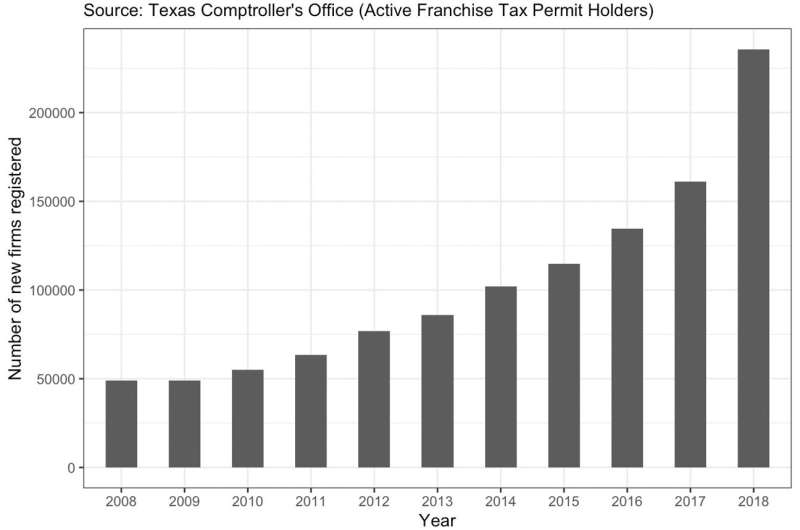This article has been reviewed according to Science X's editorial process and policies. Editors have highlighted the following attributes while ensuring the content's credibility:
fact-checked
peer-reviewed publication
trusted source
proofread
A roadmap for entrepreneurship policy in rural Texas

In a new study published in PLOS One, a University of Texas at Arlington political scientist and UT System colleagues identified the factors that predict business creation in rural Texas.
Mark Hand, assistant professor of political science at UTA, co-authored "Predicting Firm Creation in Rural Texas: A Multi-Model Machine Learning Approach to a Complex Policy Problem" with Varun Rai and Vivek Shastry from UT Austin.
The study suggests that entrepreneurship is one way to boost economic growth in rural regions. The factors thought to promote it in urban areas—such as a highly educated workforce or a concentration of patent-producing businesses—are less predictive of new business creation in rural areas. Instead, rural areas favor socioeconomic factors such as social capital and the availability of child care to be more predictive.
Hand said existing research in entrepreneurialism often doesn't account for the differences in economies and cultures in rural and urban areas. Rural entrepreneurship is a distinct phenomenon.
"There's little research done on what promotes firm creation in places like rural Texas," Hand said. "It's one of the issues policymakers come across when they ask about firm creation in rural America."
Patents and access to broadband are two factors often linked to the promotion of new business growth, but Hand and the researchers found that other things, including the presence of local banks, are a stronger predictor of new business creation in rural Texas towns.
"If someone wanting to start a business had more assurance they'd be approved for a loan, they might be more likely to start a rural business. Those first loans often depend on the kind of trust that small towns have in spades," Hand said. "This spring, the Texas Legislature approved $1.5 billion dollars for broadband expansion. While access to broadband is important, it may also be that policymakers should support local banking."
The study could aid policy experts and lawmakers in determining what factors need more or less attention on policy agendas, the researchers said.
"This study offers valuable guidance to policymakers grappling with complex economic challenges," Shastry said. "The findings provide an initial roadmap to inform evidence-based decision-making and facilitate targeted interventions that promote entrepreneurial activity and foster vibrant rural economies."
"My hope is that this study can lead to better research and can guide more affirmative policies to promote business growth in rural America and help spark economic growth in small-town Texas," Hand said.
More information: Mark C. Hand et al, Predicting firm creation in rural Texas: A multi-model machine learning approach to a complex policy problem, PLOS ONE (2023). DOI: 10.1371/journal.pone.0287217
Journal information: PLoS ONE
Provided by University of Texas at Arlington




















